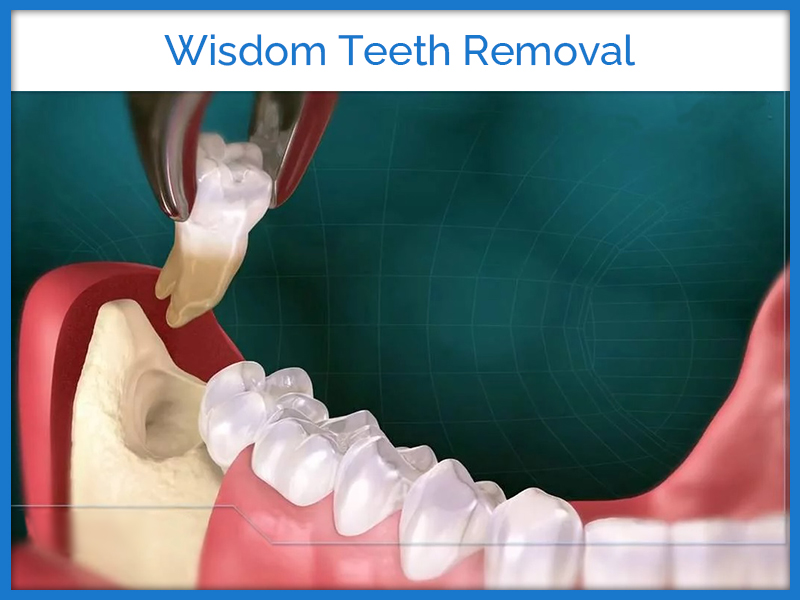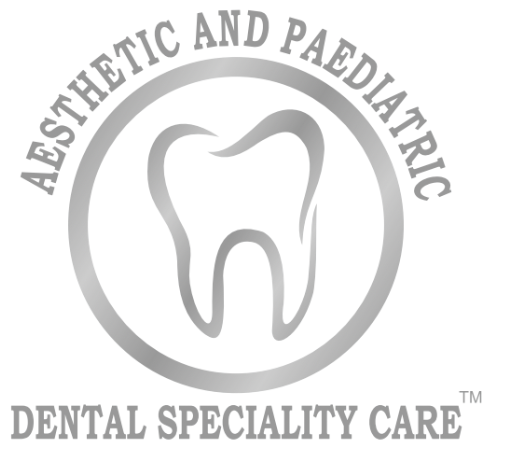WISDOM TOOTH REMOVAL

WHAT ARE WISDOM TEETH?
Wisdom teeth often known as third molars are the last teeth to erupt. One usually gets them between age of 18-22. If they erupt smoothly and without any interruption,can be proved as an asset. But the problem with third molars is that in case they are unable to erupt properly due to smaller jaw size or are misaligned, they would need to be extracted as damage the adjacent teeth or cause gum inflammation in that area.
WHAT PROBLEMS CAN A WISDOM TOOTH CAUSE?
An impacted wisdom tooth can cause a problem. This means that the wisdom teeth remain intact in the soft tissue and partially break or erupt through gums. In such situations the chances of bacteria entering the tooth are high which may cause infection & lead to the swelling in the jaw and pain.
There is 4 set of wisdom teeth two on each upper and lower jaw.
Nowadays majorly due evolutionary changes people do not get wisdom teeth. This is because the jaws do not develop completely & properly which restrain the wisdom teeth to erupt.
IS THERE A NEED TO REMOVE WISDOM TEETH?
- It is not necessary to remove wisdom teeth as long as they are not causing any problem.
- They would have to be removed if they are impacted & causing infection which is associated with pain in jaw, ear & surrounding area.
- We can advise you better about your third molar at an early stage after an examination & simple X-ray.
- Delaying an infected condition can also lead to severe surgeries and heavy bleeding or can even cause a minor loss of movement in your jaw.
SYMPTOMS TO GET WISDOM TEETH REMOVED
- Pain in back side of jaw.
- Redness, swelling, tenderness.
PROCEDURE FOR WISDOM TEETH REMOVAL
The removal process depends on the condition in which the wisdom teeth is. It is easy to extract wisdom tooth if it has fully erupted. But if the tooth is impacted then it will require a seperation in the gums. Sometimes the tooth is extracted in 2-3 parts to minimize the amount of bone trimming.
Post Wisdom Tooth removal
- Avoid vigorous rinsing and touching the area.
- Take the prescribed medicines as advised.
- A certain amount of bleeding is expected, however, if the bleeding exceeds then visit us immediately
- Swelling around mouth and cheeks is common for a couple of days. Using ice-packs help in these days.
- Be on a liquid diet for the first few days. Avoid the use of straw.
- Do brush twice a day but make sure you are gentle in that are & on rinsing.
FREQUENTLY ASKED QUESTIONS
Q.1. Is wisdom tooth removal painful?
The procedure itself is not painful as it’s performed under local anesthesia or sedation. You may experience mild discomfort or swelling afterward, which can be managed with prescribed painkillers and proper care.
Q.2. When should I get my wisdom tooth removed?
If your wisdom tooth is impacted, causing pain, infection, swelling, or damaging nearby teeth—it’s time to consider removal. Regular dental check-ups and X-rays help determine the right timing.
Q.3. What is the recovery time after wisdom tooth extraction?
Most patients recover in 3–7 days. Complete healing of the gums may take a few weeks. Following post-operative care instructions is essential to ensure faster recovery and avoid complications.
Q.4. Can I eat normally after the procedure?
For the first 24–48 hours, stick to soft, cool foods like yogurt, smoothies, and soups. Avoid hard, spicy, or hot foods that may irritate the surgical area. Gradually return to a normal diet as healing progresses.
Q.5. Are there any risks or side effects?
As with any minor surgical procedure, there are small risks like swelling, bleeding, or dry socket. However, these can be minimized by following your dentist’s instructions and maintaining good oral hygiene.
